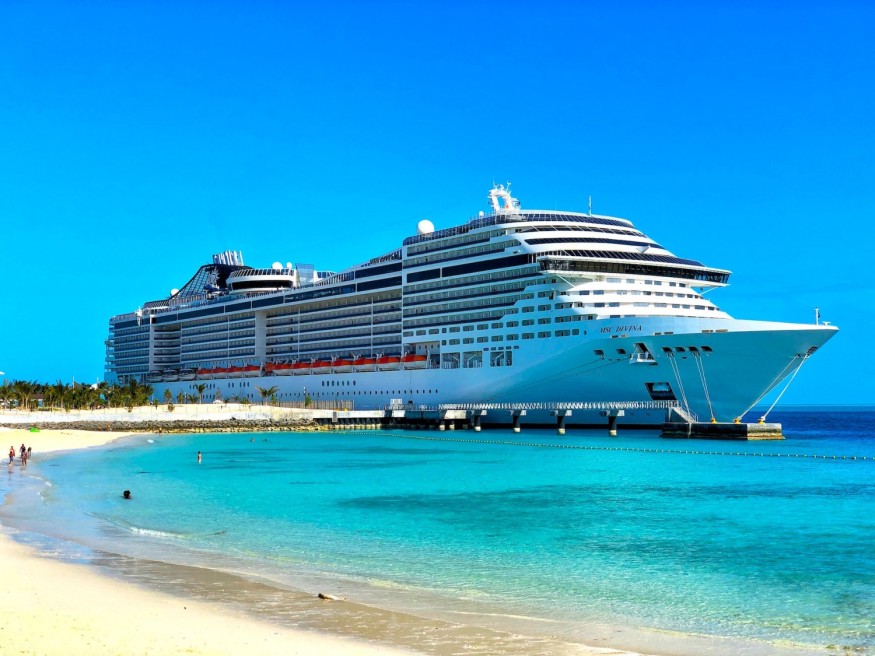How To Minimize Environmental Impact of Cruise Ships

Cruise ships have been a popular choice for people who are looking to have a remarkable life experience on the open seas. Cruise ships are floating cities in themselves, and every year they draw millions of passengers from around the world. Although the glitz and glamor of embarking on a cruise adventure are very tempting, behind all of this lies a significant environmental challenge.
The environmental impact of cruise ships has recently come under scrutiny, and it is important that we address this impact to ensure the longevity of our planet's ecosystem and embark on exciting adventures across the open seas sustainably. In this post, we will explore some tips that will allow us to minimize the impact of cruise ships and enjoy our vacations across open seas on cruise ships while being mindful of our planet.
The Environmental Impact of Cruise Ships
Before we progress towards actionable tips that can help minimize the environmental impact of cruise ships, we need to understand the environmental impact of cruise ships. Cruise ships affect the environment in three distinct ways, as mentioned below:
Air Pollution
Cruise ships are known for producing notoriously harmful gasses that are then emitted into the atmosphere. These gasses contribute to air pollution, degrade the quality of air, and contribute to climate change and global warming. These usually include notorious gasses like sulfur dioxide and nitrogen oxide that are harmful to the atmosphere.
Water Pollution
After air pollution, cruise ships also cause water pollution. Wastewater and sewage discharge from cruise ships are directly released into the water, which can have detrimental effects on marine life and coastal ecosystems. Although this has become a global issue, many ships are still releasing wastewater and sewage directly into the oceans and seas. These contain harmful chemicals and high levels of nutrients that can harm marine life.
Waste Generation
Cruise ships contain a huge number of passengers and crew members, which results in significant waste generation. The waste generated by cruise ships includes food waste, packaging materials, and other discarded items that can damage the marine ecosystem if not disposed of properly.
Tips for Minimizing the Environmental Impact of Cruise Ships
Choose Eco-Friendly Cruise Lines
The first thing that you can do to reduce and minimize the environmental impact of cruise ships is to choose an eco-friendly cruise. Before you book a cruise, you should take some time to do research on the environmental practices and impacts of various cruise lines. This will give you insights into the environmental impact of various cruise lines.
Choose a cruise line that prioritizes sustainability and has comprehensive waste management systems in place, such as Royal Caribbean. Eco-friendly cruise lines are known for practicing sustainable practices and investing in technologies that reduce pollution and minimize their environmental impact.
Go for Newer Ships
Instead of going for an old cruise ship, try to go for a newer one. Newer cruise ships are designed to be more fuel-efficient and environmentally friendly than older ones. While doing research on various cruise lines, ensure that you take this point into consideration too. Newer cruise ships are equipped with modern technologies, such as exhaust gas cleaning systems or selective catalytic reduction systems, that reduce emissions and environmental impact.
Reduce Energy Consumption
While you are on board, make sure that you minimize and reduce energy consumption. Energy consumption on cruise ships is substantial and contributes to the emission of greenhouse gasses. Therefore, to reduce the environmental impact, minimize energy usage while you are on board. Additionally, cruise lines should implement energy-efficient practices and technologies such as using LED lights, installing motion sensors in cabins to control electricity, limiting air conditioning usage, etc. to reduce the environmental impact of cruise ships.
Proper Waste Disposal and Recycling
Cruise lines should ensure proper disposal of waste and have a recycling system in place to prevent pollution and reduce environmental harm. Environmentally conscious cruise lines like Princess Cruises not only educate their passengers about recycling programs but also enforce strict waste disposal policies to ensure that waste is appropriately recycled and disposed of.
Proper Treatment of Wastewater
Lastly, water pollution should also be minimized. Cruise lines must ensure that there are proper systems in place for wastewater and sewage material treatment. Advanced treatment systems should be installed on cruise ships to ensure that wastewater and sewage materials are adequately treated before being discharged into the ocean. Treatment of wastewater removes harmful substances and pathogens from the water, reducing the impact of wastewater on the marine ecosystem.
Subscribe to Latin Post!
Sign up for our free newsletter for the Latest coverage!
© 2026 Latin Post. All rights reserved. Do not reproduce without permission.















